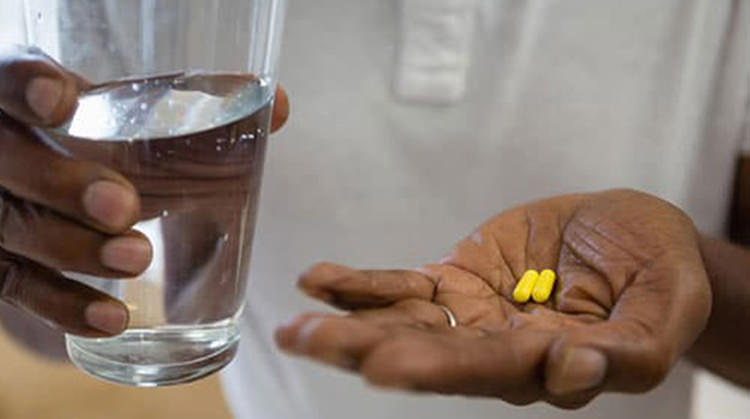- Schedule regular healthcare visits
- Take all your medications every day and at the same time as instructed
- Discuss any medication concerns or side effects with your transplant team
- Eat healthy
- Get regular exercise
- Keep a healthy weight
- Ask how you can lower your chances for high blood pressure, diabetes, cancer, or infection Become an active member of your healthcare team
Read the full article from National Kidney Foundation here.
Incompatible Blood Types and Paired Exchange Programs
What blood types “match”?
Blood typing is the first blood test that will determine if your blood is compatible with the potential donor’s blood. If the donor’s blood type works with your blood type, the donor will take the next blood test (tissue typing).
Kidney donors must have a compatible blood type with the recipient. The Rh factor (+ or -) of blood does not matter in a transplant. Read more from the National Kidney Foundation.
COVID-19 and kidney disease: insights from epidemiology to inform clinical practice
Over the course of the COVID-19 pandemic, numerous studies have aimed to address the challenges faced by patients with kidney disease and their caregivers. These studies addressed areas of concern such as the high infection and mortality risk of patients on in-centre haemodialysis and transplant recipients. However, the ability to draw meaningful conclusions from these studies has in some instances been challenging, owing to barriers in aspects of usual care, data limitations and problematic methodological practices.
Read more in Nature here.
Strangers Donating Kidneys: ‘Important Contributions’
News stories abound of altruistic individuals donating their kidneys to strangers. These donations are based on the principle that a person should be willing to donate a kidney with no knowledge of the recipient’s identity or medical or personal circumstances, and with agreement that the outcome of the transplantation may not be known. Read more in Medscape.
Pulmonary Hypertension Ups Kidney Graft Dysfunction Risk
Pulmonary hypertension is associated with increased risk for graft dysfunction after kidney transplantation, investigators report.
Among 350 patients who received a single kidney transplant from 2010 to 2011 at Emory Transplant Center in Atlanta, Georgia, 117 (33%) had preoperative pulmonary hypertension based on echocardiography. Read the full story in Renal & Urology News.
Hot Topics: SGLT2 Inhibitors and Kidney Disease
In this episode of Hot Topics in Kidney Health, Dr. Katherine Tuttle, Executive Director for Research at Providence Health Care, and Jane DeMeis, kidney patient and advocate, discuss a promising new drug that was initially developed to help patients maintain blood sugar levels and are now being used as in the prevention and treatment of kidney disease.
Read the complete article and/or listen to the recording on this topic from National Kidney Foundation here.
Does Timing Matter When Taking Anti-Rejection Medications for Your Transplanted Kidney or Heart?
Having an organ transplant can feel like a new lease on life!
You find that you can suddenly do more of the things that you enjoy. However, new recipients are sometimes overwhelmed with all the requirements of post-transplant living.
Read the full story on CareDx.com.
Access to kidney transplantation is improving for everyone, but more work remains to be done
Organ donation and transplantation are saving more lives in the United States than ever before, thanks to concerted work by stakeholders from across the country: donor families, organ procurement organizations, transplant centers, the Organ Procurement Transplant Network (OPTN), the hundreds of volunteers who serve on OPTN committees, and others.
I have witnessed this remarkable achievement firsthand as a transplant physician caring for people with kidney disease. I also witness the plight of people with end-stage kidney disease who languish on transplant wait lists, a situation that is compounded by the kinds of disparities seen in other aspects of health care. Read more in STAT News.
5 Big Benefits of Living Donation for the Donor
You probably have heard of the enormous benefits of a living vs. deceased-donor kidney for the recipient, but did you know that there are real benefits to the donor, too?
For family members or couples, they are nothing short of dramatic:
1. Helping a loved one is an amazing feeling: To see a loved one who’s been pale, weak, and often listless for many months or years gradually become their old self again is pretty powerful. Before I donated my kidney to my son in 2006, his 20 months on dialysis had left him lethargic and depressed; seeing his smile when he came into my hospital room the day after the transplant was unforgettable. Read the full story from National Kidney Foundation here.
Kidney Brothers Develop Bond for Life
What happened between two families at Stanford Children’s Health bonded them forever.
While awaiting kidney transplants for their young boys, the two families—one from Hawaii, one from California—became friends. Families often become close during the long hours of dialysis, but they don’t often hear the hopeful news that a donor kidney might be a match on the same day. Read the full story from Stanford Children’s Health here.






